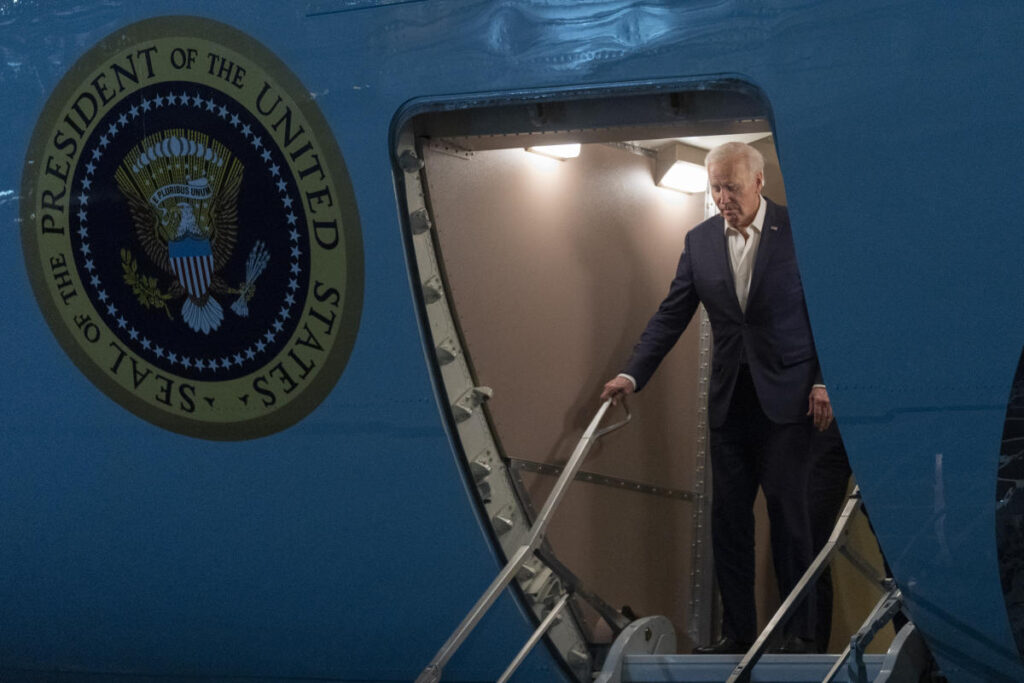In the aftermath of the recent elections, President Joe Biden has largely remained silent, a notable change from his previous warnings about the consequences of a Donald Trump presidency for American democracy. Following the decisive losses for the Democrats across the ballot, Biden’s public commentary has been minimal, with his sole significant remarks delivered in a short Rose Garden speech two days post-election, urging the nation to come together and reduce tensions. Since then, Biden has avoided more extensive reflections on the electoral outcome, even during his recent six-day trip to South America. This conspicuous reticence raises questions about the implications of his silence not only for U.S. politics but also for global perceptions of American leadership.
Political analysts and historians have noted that Biden’s lack of commentary on the elections can be interpreted in different ways. Historical context is essential, with comparisons drawn to former President Jimmy Carter, who similarly experienced a significant loss of relevance following his single term. Experts argue that Biden must actively shape his narrative during the remaining months of his presidency rather than risk being seen as irrelevant. Many speculate that Biden’s silence could impede how he is remembered historically and may impact his ability to influence his legacy. Acknowledging that he has yet to fully process the defeat, Biden’s aides suggest both he and the Democratic Party are in a phase of analysis rather than immediate reaction.
Despite his muted public presence, Biden’s actions and those of his administration indicate a commitment to maintaining decorum, particularly in respects to the peaceful transition of power. His aides have emphasized that Biden is dedicated to respecting the choice made by voters, recognizing the importance of demonstrating a return to traditional norms following the turbulence of the last election cycle. Biden’s insistence on upholding these principles suggests an intention to distinguish his presidency from that of his predecessor, who notoriously contradicted democratic practices. This approach, however, has left Biden open to criticism for not addressing the factors that contributed to the electoral losses.
During his trip to South America, Biden’s level of engagement with the media remained limited. Traditionally, significant presidential overseas trips would see extensive press interactions, but Biden largely avoided holding news conferences, opting instead for brief comments during formal meetings. Notably, he deferred questions surrounding important topics such as the conflict in Ukraine and general reflections on the election to his allies, including international leaders who echoed his priorities in public forums. This may reflect a strategy to maintain focus on foreign policy discussions rather than domestic election outcomes, revealing an effort to navigate the political landscape carefully while upholding his administration’s goals.
Furthermore, Biden’s communication with international leaders during this critical period was characterized by a surprisingly retrospective tone. In a notable meeting with Chinese President Xi Jinping, Biden emphasized past engagements rather than current geopolitical concerns, while Xi aimed to establish a forward-looking cooperative stance between the two nations. This contrast illustrates the dual challenges facing Biden: managing persistent global relations amid a changing domestic political environment. The interaction encapsulates the delicate balance the president must strike between responding to emerging international dynamics and the ongoing turbulence at home following electoral setbacks.
As Biden continued to avoid detailed comment on pressing issues, he faced sustained attempts from reporters to elicit responses throughout his South America trip. Even light-hearted remarks about his birthday attempts fell flat as he boarded Air Force One without addressing the questions. Paradoxically, the increased focus on Biden’s silence and hesitancy has spurred speculation about the internal deliberations within the administration, highlighting the importance of effective communication both domestically and on the global stage. With lingering concerns about the implications of Trump’s victory, as well as significant geopolitical challenges, many observers are mindful of the need for decisive leadership from Biden in both public and private spheres as he shapes his final months in office.

